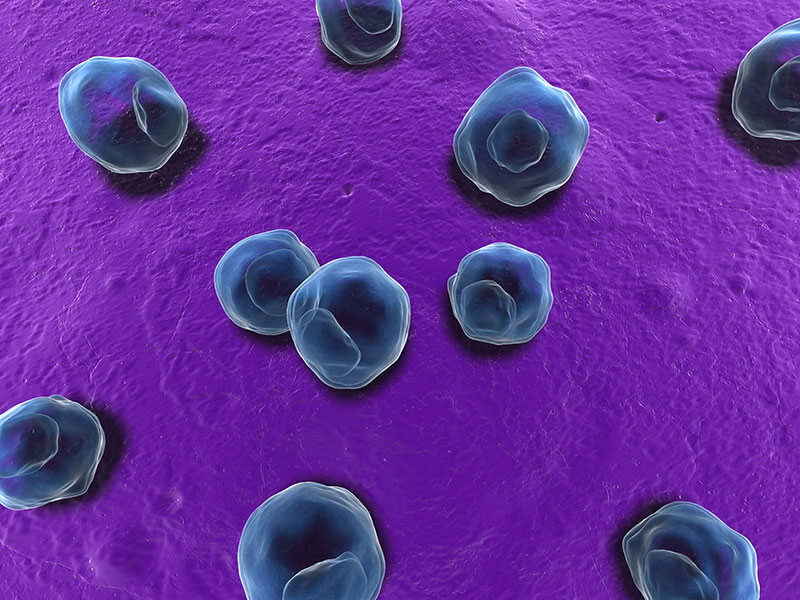Chlamydia Causes Infertility? Unraveling the Hidden Dangers
Chlamydia is a common sexually transmitted infection (STI) caused by the bacteria Chlamydia trachomatis. It can affect both men and women, but in this article, we will be unraveling how chlamydia specifically affects the reproductive system and whether or not it can cause infertility. Understanding the basics of chlamydia is crucial in recognizing its potential consequences and seeking appropriate treatment.

Understanding Chlamydia: The Basics
Chlamydia, caused by the bacterium Chlamydia trachomatis, is one of the most common sexually transmitted infections (STIs) worldwide. It is primarily transmitted through unprotected sexual intercourse, including vaginal, anal, and oral sex. Additionally, chlamydia can be passed from mother to baby during childbirth, leading to potential complications if left untreated. Due to its stealthy nature, chlamydia is often referred to as a “silent” infection, as it frequently presents no noticeable symptoms, especially in women. This emphasizes the importance of regular STI screenings, even if you feel perfectly healthy.
When symptoms do occur, they may vary between individuals. In women, symptoms may include abnormal vaginal discharge, pain or a burning sensation during urination, pain during sexual intercourse, and lower abdominal pain. It’s crucial to note that the absence of symptoms does not equate to the absence of infection. In men, symptoms of chlamydia may include discharge from the penis, discomfort or pain during urination, and testicular pain or swelling. People often mistake these symptoms with other conditions. This underscores the necessity of proper testing and diagnosis.
Chlamydia is a common sexually transmitted infection that have significant impacts on the reproductive health. In addition to the risks mentioned above, untreated chlamydia can also lead to long-term complications in both men and women. In men, the infection can cause epididymitis, which is inflammation of the epididymis – the tube that stores and carries sperm. This inflammation can result in pain, swelling, and potential scarring that may affect fertility. Furthermore, chlamydia can have broader implications beyond just the reproductive system. Studies have shown that untreated chlamydia infections can increase the risk of contracting other sexually transmitted infections, such as HIV. This is due to the fact that the inflammation and damage caused by chlamydia can create openings in the genital tract, making it easier for other pathogens to enter the body. Therefore, early detection and treatment of chlamydia are crucial not only for reproductive health but also for overall well-being.
The Link Between Chlamydia and Infertility
Chlamydia is indeed one of the causes of infertility in both men and women. In women, the scarring and damage caused by untreated chlamydia can result in blocked fallopian tubes. This prevents fertilization of the egg by sperm. Additionally, chlamydia can lead to chronic pelvic pain, which can negatively impact sexual function and fertility.
In men, chlamydia can infect the urethra and result in inflammation of the epididymis, the tightly coiled tube located at the back of each testicle. This condition, known as epididymitis, can cause testicular pain and reduce sperm motility, potentially leading to infertility.
It is crucial to highlight the importance of early detection and treatment of chlamydia to prevent long-term complications such as infertility. Experts usually recommend regular screenings for sexually transmitted infections, including chlamydia, to sexually active individuals to ensure timely intervention.
Symptoms of Chlamydia: What to Look For
As mentioned earlier, chlamydia often presents hidden dangers with no noticeable symptoms, which is why regular screenings are crucial. However, when symptoms do occur, it is important to recognize them. For women, symptoms may include abnormal vaginal discharge, pain or a burning sensation during urination, pain during sexual intercourse, and lower abdominal pain. Discharge from the penis, discomfort or pain during urination, and testicular pain or swelling are some of what men usually experience. it is essential to get tested and seek prompt treatment to prevent potential complications if you experience any of these symptoms.
It is worth noting that chlamydia is one of the most common sexually transmitted infections (STIs) worldwide. Millions of new cases of Chlamydiareported each year. The infection is caused by the bacterium Chlamydia trachomatis and can be easily transmitted through unprotected sexual contact. Due to its often asymptomatic nature, many individuals may unknowingly carry the infection and spread it to their partners.
Furthermore, untreated chlamydia can lead to serious health issues, such as pelvic inflammatory disease (PID) in women, which can result in chronic pelvic pain, infertility, and potentially life-threatening ectopic pregnancies. In men, untreated chlamydia can cause epididymitis, a painful condition that affects the tubes that store and carry sperm. Additionally, both men and women with chlamydia are at a higher risk of contracting other STIs, including HIV.
Diagnosis: How do you detect Chlamydia?
Various diagnostic tests can detect Chlamydia, a common sexually transmitted infection (STI) caused by the bacterium Chlamydia trachomatis. These tests play a crucial role in identifying and treating the infection to prevent further complications. One of the common methods used for chlamydia detection is through urine tests. You then collect a urine sample and analyze for the presence of the chlamydia bacteria.
Healthcare providers may also collect swabs from the cervix in women or the urethra in men to test for chlamydia. They then send the swabs to a laboratory for analysis to determine the presence of the infection. Some clinics may offer rapid urine tests that provide results within minutes, allowing for quick diagnosis and treatment initiation.
The accuracy of these diagnostic tests is highest when conducted a few weeks after exposure to chlamydia or symptoms onset. Early detection and treatment of chlamydia are crucial in preventing the spread of the infection.
Health experts recommend chlamydia testing regularly. This is especially if you are sexually active or engaging in unprotected sexual activity with new or multiple partners. Regular testing can help in early detection and treatment of chlamydia. This ultimately reduces the risk of transmission and long-term health consequences.
Treatment Options for Chlamydia Infections
Treatment is crucial to prevent further complications and reduce the risk of transmitting the infection to others. Healthcare professionals usually prescribe a course of antibiotics to treat chlamydia. It is important to complete the full course of antibiotics, even if symptoms improve or disappear.
During treatment, it is important to abstain from sexual activity or use condoms consistently and correctly to prevent reinfection or transmission to a partner.
It’s worth noting that chlamydia is one of the most common sexually transmitted infections (STIs) worldwide. The infection can affect both men and women and is often asymptomatic. This means individuals may not experience any symptoms. This is why regular STI screenings are essential for early detection and treatment.
Follow up testing
Experts also recommend regular follow-up testing to ensure full treatment of the infection. In some cases, if chlamydia is left untreated, it can lead to serious health issues such as pelvic inflammatory disease (PID) in women or epididymitis in men. Therefore, seeking prompt treatment is crucial for preventing long-term complications.
While it is easily treatable with antibiotics, the consequences of leaving it untreated can be quite severe. In women, untreated chlamydia can progress to pelvic inflammatory disease (PID), a serious infection of the reproductive organs that can cause long-term damage, including chronic pelvic pain and infertility. Furthermore, the risk of developing tubal scarring increases with untreated chlamydia, which can lead to complications such as ectopic pregnancy, a life-threatening condition where a fertilized egg implants outside the uterus.
For men, untreated chlamydia can result in epididymitis, an inflammation of the coiled tube at the back of the testicle that stores and carries sperm. This can cause pain, swelling, and in severe cases, infertility. It is important to note that even though chlamydia may not always present with noticeable symptoms, the infection can still be causing internal damage if left untreated. Therefore, regular STI screenings and prompt treatment are crucial in preventing the long-term effects of chlamydia.
The Importance of Regular STI Screenings
Regular STI screenings are essential, even if you feel healthy and have no symptoms. As chlamydia is often asymptomatic, these screenings can help detect infections early and prevent potential complications. If you are sexually active, it is recommended to get tested for chlamydia and other STIs at least once a year, or more frequently if you have multiple sexual partners or engage in unprotected sex.
Remember, the first step to protecting yourself and preventing infertility is being informed about chlamydia and the potential risks it poses to your reproductive health. Take proactive measures, practice safe sex, and maintain regular screenings to ensure your reproductive well-being.
Furthermore, it’s important to note that STI screenings are not just about your physical health but also about your mental and emotional well-being. The peace of mind that comes from knowing your STI status can alleviate anxiety and promote a healthier mindset when it comes to sexual health. By staying on top of your screenings, you are taking control of your overall wellness and empowering yourself with knowledge.
Additionally, regular STI screenings can also help in the early detection of other health issues beyond STIs. Some STI symptoms can mimic those of other conditions, and a comprehensive screening can uncover underlying health concerns that may otherwise go unnoticed. By prioritizing regular screenings, you are not only safeguarding your sexual health but also taking a proactive approach to your overall well-being.
